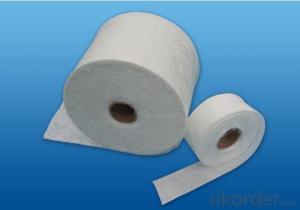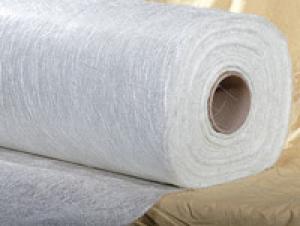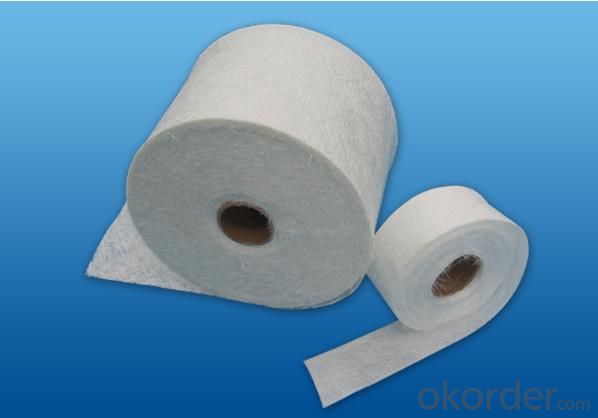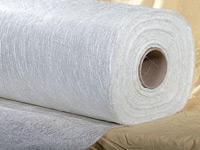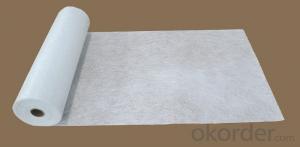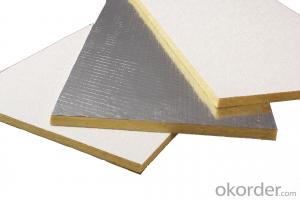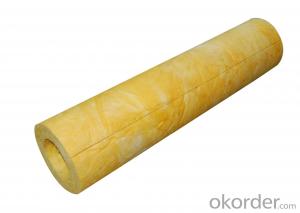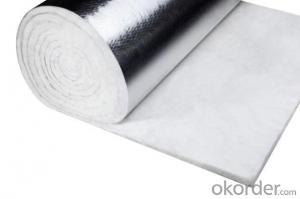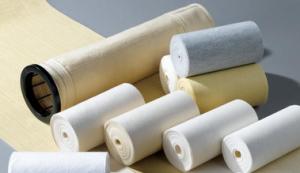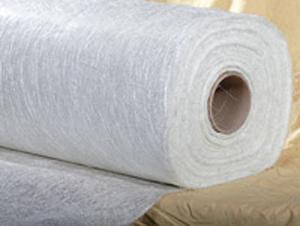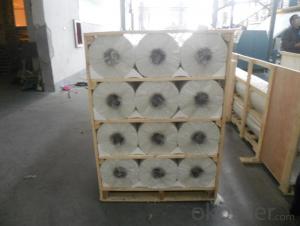Fiberglass Mat Tissue Stitched Mat 250g
OKorder Service Pledge
OKorder Financial Service
You Might Also Like
Structure of FIBERGLASS STITCHED MAT
The stitched mat is made of chopped strand which randomly dispersed and be stitched together by polyester thread. The width is available from 150-2400mm.Density of mat generally is 300-600g/m2.
The product is compatible with Polyester resin, vinyl ester resin, and epoxy resin.
Stitched mat is mostly primarily in pultrusion, RTM, filament winding, compression molding and hand lay up processes.
It is widely used in pipe lining, pultrusion section, storage tanks, FRP boat, insulation panel etc.
Main Features of FIBERGLASS STITCHED MAT
◎ Uniform thickness, good wet tensile strength retention.
◎ Good mould-ability, good drapability and easy operation.
◎ Good wet out speed and high efficiency in production.
FIBERGLASS STITCHED MAT Images
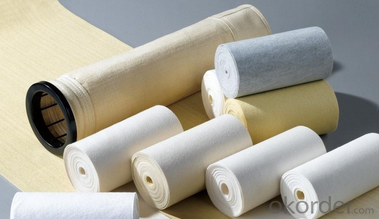
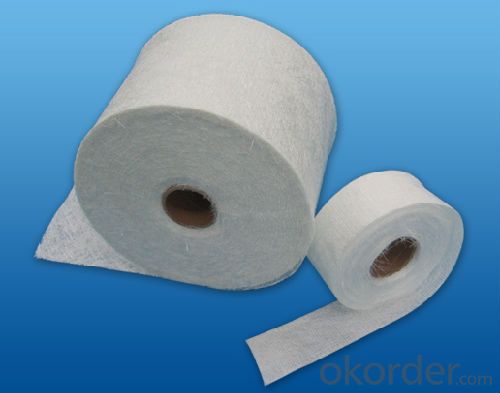
FIBERGLASS STITCHED MAT Specification:
Code | Density(g/m2) | Chopping layer density g/m2 | Width mm |
EMK225 | 225 | 225 | 150~2600 |
EMK250 | 250 | 250 | 150~2600 |
EMK300 | 300 | 300 | 150~2600 |
EMK450 | 450 | 450 | 150~2600 |
EMK600 | 600 | 600 | 150~2600 |
FAQ of FIBERGLASS STITCHED MAT
1. Why Choose us?
CNBM is a stated own company, provide the guarantee for the best quality, best service and safety business.
2. How will we guarantee the quality?
a, ISO 9001-2008 quality control system;
b, Strict and regular quality control in production;
c, Inspeciation when loading into container before shippment;
d, Sample stock for one year for quality tracing and record.
3. What is your MOQ?
Our MOQ is one pallet.
4. Can you provide sample?
Yes, samples are in stock. we can offer free sample for you.
5. Payment terms?
We can accept L/C, T/T etc.
6. Do you offer OEM service?
Yes, we can print customers’ logo on the packaging;
And the size and specification can be produced and design according to your demand.
- Q: How does fiberglass mat tissue compare to other insulation materials?
- Fiberglass mat tissue is a highly effective insulation material that offers several advantages over other insulation materials. Firstly, fiberglass mat tissue has excellent thermal insulation properties, which means it effectively prevents heat transfer and helps maintain a comfortable indoor temperature. This is particularly important in extreme climates where heat or cold can easily penetrate the building envelope. Additionally, fiberglass mat tissue is resistant to moisture, mold, and mildew, making it a durable and long-lasting insulation option. It does not absorb water, which helps to prevent the growth of mold and the degradation of the material over time. This is especially beneficial in humid environments or areas prone to moisture accumulation, such as basements or bathrooms. Furthermore, fiberglass mat tissue is non-combustible and has a high fire resistance rating. This makes it a safe choice for insulation, as it does not contribute to the spread of flames in case of a fire. It can also act as a barrier, preventing the fire from spreading to other areas of the building and offering occupants valuable time to evacuate. In terms of installation, fiberglass mat tissue is relatively easy to handle and install. It can be cut to fit any desired shape or size, allowing for flexibility during installation. It can also be used in various applications, including walls, floors, ceilings, and roofs, making it a versatile insulation material. Lastly, fiberglass mat tissue is an environmentally friendly option. It is made from recycled glass and sand, which helps reduce waste and conserve natural resources. It is also recyclable at the end of its lifespan, further minimizing its environmental impact. Overall, fiberglass mat tissue exhibits superior thermal insulation properties, durability, resistance to moisture and fire, ease of installation, and environmental sustainability, making it a highly favorable choice when compared to other insulation materials.
- Q: What is the maximum temperature fiberglass mat tissue can withstand?
- The maximum temperature that fiberglass mat tissue can withstand typically ranges from 600 to 800 degrees Celsius.
- Q: Is fiberglass mat tissue easy to install?
- Yes, fiberglass mat tissue is relatively easy to install. It is lightweight and flexible, making it convenient to handle and work with. Additionally, it can be easily cut to the desired size and shape, allowing for precise installation in various applications.
- Q: What is the moisture resistance rating of fiberglass mat tissue?
- The moisture resistance rating of fiberglass mat tissue may differ depending on the specific product and manufacturer. Nonetheless, fiberglass mat tissue is renowned for its exceptional moisture resistance properties. It is typically engineered to exhibit high resistance against water absorption, rendering it suitable for applications where moisture exposure is a concern. This moisture resistance attribute aids in preserving the structural integrity and performance of the fiberglass mat tissue, even under humid or wet conditions. It is crucial to consider the manufacturer's provided product specifications to ascertain the precise moisture resistance rating when selecting fiberglass mat tissue for a particular application.
- Q: Can fiberglass mat tissue be used for insulation in chemical storage tanks?
- Yes, fiberglass mat tissue can be used for insulation in chemical storage tanks. It is a commonly used material due to its excellent thermal insulation properties and resistance to corrosion, making it suitable for protecting the tank and its contents from extreme temperatures and chemical reactions.
- Q: Can fiberglass mat tissue be used for insulation in shopping malls?
- Indeed, insulation in shopping malls can incorporate the utilization of fiberglass mat tissue. This material is widely employed and proven to be efficient for thermal insulation owing to its low thermal conductivity and exceptional resistance to heat transfer. Moreover, fiberglass mat tissue possesses the advantage of being non-combustible, rendering it a secure choice for commercial structures such as shopping malls. Furthermore, its lightweight nature facilitates effortless installation, and its superb sound absorption properties contribute to establishing a pleasant and serene ambiance in the mall. All in all, fiberglass mat tissue emerges as an appropriate selection for insulation in shopping malls, ensuring energy efficiency and enhanced indoor comfort.
- Q: How does the strength of fiberglass mat tissue compare to other reinforcement materials?
- The strength of fiberglass mat tissue is considered to be quite high when compared to other reinforcement materials. Fiberglass mat tissue is made up of numerous glass fibers that are tightly intertwined, resulting in a strong and durable material. This type of reinforcement material is commonly used in applications that require high strength, such as in the construction industry for reinforcing concrete structures, in the automotive sector for manufacturing lightweight yet strong components, and in the aerospace industry for building aircraft parts. Compared to other reinforcement materials like steel or carbon fiber, fiberglass mat tissue offers several advantages. Firstly, it is relatively lightweight, which makes it easier to handle and transport. Additionally, fiberglass mat tissue has a high tensile strength, meaning it can withstand stretching or pulling forces without breaking. It also has good impact resistance and is capable of absorbing energy, which makes it suitable for applications where impact resistance is important. Moreover, fiberglass mat tissue is highly corrosion resistant, making it suitable for use in harsh environments or in contact with chemicals. Unlike steel, it does not rust or deteriorate over time. Furthermore, fiberglass mat tissue is non-conductive, which is beneficial in applications where electrical conductivity can be a safety hazard or interfere with electronic equipment. Overall, the strength of fiberglass mat tissue is considered to be excellent when compared to other reinforcement materials. Its high tensile strength, lightweight nature, corrosion resistance, and impact resistance make it a versatile and widely used material in various industries.
- Q: How does fiberglass mat tissue compare to other reinforcing materials, such as carbon fiber or kevlar?
- Various industries commonly use fiberglass mat tissue, carbon fiber, and Kevlar as reinforcing materials due to their high strength and durability. However, they differ in composition and properties, resulting in different applications and performance characteristics. Fiberglass mat tissue consists of fine glass fibers randomly bonded together with a binder. It possesses excellent tensile strength, corrosion resistance, and affordability, making it widely used in construction, automotive, and marine industries. Additionally, its high flexibility enables easy conformation to complex shapes. However, it may not possess the same strength-to-weight ratio as carbon fiber or Kevlar. Carbon fiber comprises tightly woven thin strands of carbon atoms, creating an incredibly strong and lightweight material. It boasts a higher tensile strength than fiberglass mat tissue, making it suitable for applications that prioritize weight reduction and high strength, such as aerospace, sports equipment, and automotive components. Furthermore, carbon fiber exhibits exceptional stiffness and fatigue resistance, albeit at a higher cost compared to fiberglass mat tissue. In contrast, Kevlar is an aramid fiber renowned for its exceptional strength-to-weight ratio, impact resistance, and abrasion resistance. It finds extensive use in applications requiring high impact resistance, including bulletproof vests, helmets, and protective clothing. While Kevlar surpasses fiberglass mat tissue in strength, it may lack the same level of rigidity as carbon fiber. Moreover, Kevlar is more expensive than fiberglass mat tissue but less expensive than carbon fiber. In summary, fiberglass mat tissue, carbon fiber, and Kevlar possess unique characteristics and advantages. Fiberglass mat tissue is versatile, cost-effective, and flexible, while carbon fiber offers outstanding strength and stiffness. Kevlar excels in impact resistance and durability. The choice of reinforcing material depends on specific application requirements, cost considerations, and desired performance characteristics.
- Q: Can fiberglass mat tissue be used for making insulation boards?
- Yes, fiberglass mat tissue can be used for making insulation boards. Fiberglass mat tissue is a lightweight, flexible material that is commonly used in the production of insulation boards. It provides excellent thermal insulation properties, as well as sound absorption and fire resistance. The mat tissue is typically layered and compressed to form the insulation boards, creating a durable and effective barrier against heat transfer. Additionally, fiberglass mat tissue is resistant to moisture, mold, and pests, making it a reliable choice for insulation applications. Overall, fiberglass mat tissue is a suitable material for making insulation boards due to its insulation performance, durability, and resistance to various environmental factors.
- Q: Can fiberglass mat tissue be used for ballistic protection?
- While fiberglass mat tissue can offer some degree of ballistic protection, it may not provide the same level of safety as materials specifically created for this purpose. Its exceptional strength and resistance to heat make it ideal for insulation, reinforcement, and fire resistance applications. Nevertheless, when it comes to shielding against ballistic threats, there are specialized materials engineered to endure the impact of bullets or projectiles. These materials, such as aramid fibers (like Kevlar) or ultra-high-molecular-weight polyethylene fibers (like Dyneema), are far more effective in delivering superior ballistic protection. Therefore, if the primary concern is ballistic protection, it is advisable to opt for materials designed explicitly for this purpose rather than relying solely on fiberglass mat tissue.
Send your message to us
Fiberglass Mat Tissue Stitched Mat 250g
OKorder Service Pledge
OKorder Financial Service
Similar products
Hot products
Hot Searches
Related keywords
